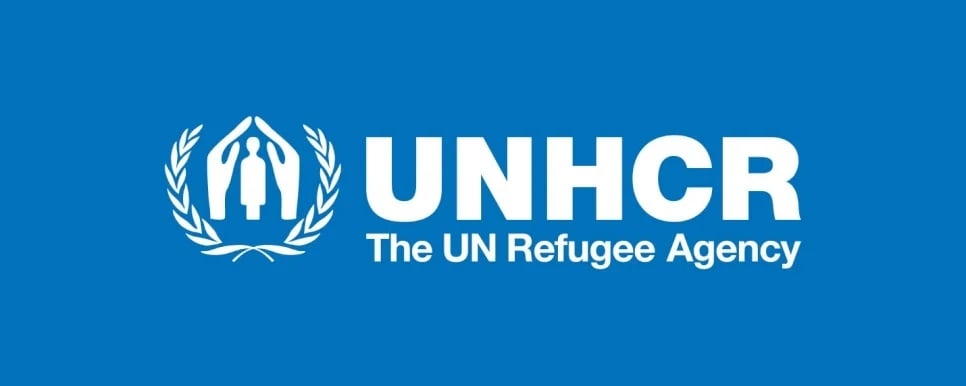Honduran family starts new life across the country, but terror is never far

Honduran family starts new life across the country, but terror is never far
Three times, Mariana* stood up to the violent gangs that took over her once-idyllic hometown in Honduras. “The first time, they laughed with scorn,” she said. “The second time, they threatened to kill me … and the third, it almost cost us our lives.”
Mariana, 42, belongs to the Garífunas, a small Afro-indigenous community whose way of life is in jeopardy. After the third threat, she knew she and her children had no choice but to abandon her home and flee. In 2016, they joined the ranks of hundreds of thousands of internally displaced people in Honduras.
According to government statistics, some 247,000 Hondurans are estimated to have been internally displaced within the country since 2004 – the vast majority of them fleeing extorsion, coercion and targeted threats by gangs and other criminal organizations.
Around one-third of those displaced report having had their property seized by their persecutors, and many eventually end up having to move to another country. Some 95,000 Hondurans had applied for asylum or refugee status abroad by December, 2018, according to statistics from UNHCR, the UN Refugee Agency.
“If they resist recruitment by gangs, they risk being killed or having to flee for their lives.”
For generations, Mariana’s family lived in peace in the traditional Garífuna enclave, on the northern Caribbean coast. Mariana recalls hot afternoons when her children would play in the shade of the mango trees and coconut palms that flanked the modest home she inherited from her mother.
That all changed around nine years ago, with the arrival of the gangs, which also operate widely in neighbouring El Salvador, as well as in Guatemala and Mexico. The sound of birdsong and the rhythms of the waves that once echoed through the house were replaced by screams and the sudden crack of gunshots – the sounds of gang members executing those who opposed their reign.
Aaron,** the leader of the gang who had taken over Mariana’s town, took an interest not only in Mariana’s family home – located in the perfect spot to ply the drug trade – but also in one of her daughters, 16-year-old Natalia.* When his notes promising luxury gifts failed to sway the high schooler, Aaron tried to kidnap Natalia instead.
The attempt failed, and Mariana sent Natalia and her sister to live with relatives in another town. The move infuriated Aaron, who saw it as a threat to his authority.
“He couldn’t stand to be challenged by a woman,” Mariana recalled. “Especially a poor black woman like me.”
Aaron and his fellow gang members went after Mariana’s youngest child, Adrián,* then 14, beating him up every time they crossed paths with him. Once again, Mariana confronted Aaron, but once again her bravery backfired. Adrián was shot in the leg.
Mariana realized she had no choice but to flee. She bundled Adrián into a taxi and the two drove about as far away as they could get without crossing any international borders.
As soon as she and Adrián left, the gang took over their house, transforming the family home into a so-called “casa loca,” or “crazy house” in Spanish, where victims are taken to be tortured and killed.
“I never imagined I’d be forced to leave my whole life behind.”
UNHCR is working with the Honduran government, partner organisations and civil society to bring humanitarian assistance, protection and hope to the country’s internally displaced people. The agency is increasing the capacity at shelters and stepping up its resettlement programs. UNHCR is also helping to strengthen the Honduran government’s response to the phenomenon, supporting the creation of a national registry of seized and abandoned property and providing training to hundreds of judges, among other initiatives.
“Chronic violence and persecution present young Hondurans with grim prospects for the future. If they resist recruitment by gangs, they risk being killed or having to flee for their lives,” said Andrés Celis, UNHCR’s Representative in Honduras.
Today, despite COVID-related lockdowns in Honduras, El Salvador and Guatemala, internally displaced people and community leaders report that criminal groups are using the confinement to strengthen their control over communities. This includes the stepping up of extortion, drug trafficking and sexual and gender-based violence, and using forced disappearances, murders, and death threats against those that do not comply.
In a small country such as Honduras, even fleeing does not always result in lasting safety. It takes just several hours, by car, to travel from coast to coast. With gangs spreading throughout the country, many displaced people remain vulnerable to their persecutors even after uprooting themselves from their communities and support networks. Many internally displaced people end up fleeing more than once, each time farther away from home.
Around four years after she was displaced, Mariana is still struggling to restart her life. She now cobbles together her earnings as a street vendor to make rent in the small apartment where the family lives.
“I never imagined I’d be forced to leave my whole life behind,” she said as she wiped away the tears that streamed down her face.
*Names changed due to protection concerns.
**Fictitious name.









